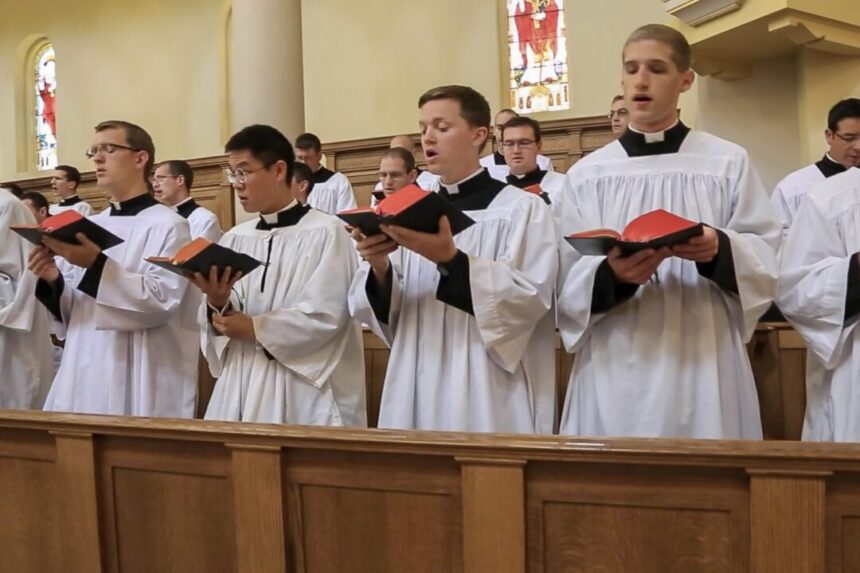Commentary
In the world of classical music, there exists a certain snobbery that can be off-putting to many. This attitude, however, is historically and aesthetically misguided. Much of what we consider “classical” music was, in fact, popular music that endured not because of elite culture, but because people genuinely loved it.
This clash between elite judgment and popular sentiment is particularly evident during the Christmas season when traditional carols, like “O Come, O Come Emmanuel,” face criticism from those who view them as outdated or inferior.
The origins of “O Come, O Come Emmanuel” can be traced back to the Middle Ages, with its lyrics based on the O Antiphons—a series of chants dealing with the prophecies of the Messiah. Despite its ancient roots, the song continues to resonate with people today, especially during the Advent season.
While some may dismiss it as a mere 19th-century creation, recent research by Dr. Mary Berry—a renowned chant scholar—revealed a surprising truth about the song’s origins. Contrary to popular belief, “O Come, O Come Emmanuel” dates back to the 15th century, possibly even earlier, as a melody sung during funeral processions.
Dr. Berry’s discovery challenges the notion that the song is a modern imitation, shedding light on its rich history and enduring appeal. Whether performed with grand choirs or in a more traditional manner, “O Come, O Come Emmanuel” remains a beloved holiday favorite around the world.
The book was shared by two sisters, each singing their own part as they processed. It turns out that the great Advent hymn-tune was originally associated with a funeral litany of the saints, with sections of a responsory interspersed. Helmore’s genius detected an appropriate Advent sound in the melody, conveying a sense of solemn expectancy for the Nativity of Christ and his Second Coming. This discovery by a master musicologist saved the piece from snobbery, forcing fancy-pants musicologists to acknowledge its beauty. Enjoy this ancient piece of music, possibly dating back to the Gregorian repertoire.
Civilization is a long process, spanning generations and defying full understanding by intellectuals. Participating in it means being part of the “democracy of the dead,” finding value in traditions that stand the test of time. Many Christmas traditions, including songs, have been passed down through generations, more enduring than any fleeting trend or regime.
Opinions expressed in this article are those of the author and do not necessarily reflect the views of The Epoch Times.
Source link





